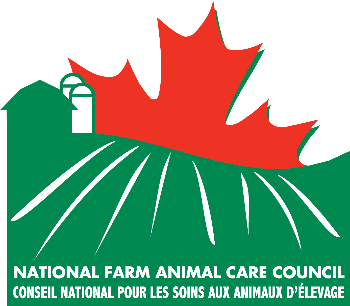The importance of animal welfare to Canadians
Canadians rely on retailers to ensure that the food they purchase is safe, high quality and raised in a humane manner. This why RCC and its’ members are committed to working collaboratively with different stakeholders including farmers, academics, NGOs and governments.
RCC is also a proud member of the National Farm Animal Care Council (NFACC) which works to develop Codes of Practice, best practices and information to advance farm animal welfare. The NFACC provides a wide-range of resources for retailers on animal welfare – from technical specifications through public communications.
Advocating on behalf of retailers
In 2021, RCC renewed and revamped its approach to focus on multi-stakeholder collaborative processes for decision-making, supporting the wide variety of comprehensive animal care Codes of Practices developed under the National Farm Animal Care Council (NFACC). RCC sits on NFACC’s Board of Directors, and RCC grocery members are represented and actively participate in the development of NFACC Codes.
The industry as a whole has made significant progress in advancing animal welfare in recent years including:
- An overhaul of the Code of Practice for the Care and Handing of Pullets and Laying Hens, initiated by the Egg Farmers of Canada, was completed in 2017. In addition to advancing welfare requirements in key areas such as barn environment, health and husbandry practices as well as handling and transportation, the Code of Practice mandates the phase out of conventional cages. This move represents the most significant change ever to egg production in Canada. More information on the transition to alternative hen housing is available here.
- A fundamental overhaul of the Code of Practice for the Care and Handling of Pigs, initiated by the Canadian Pork Council (CPC), was completed in 2014. It includes recommendations and requirements for husbandry practices, transportation, feed and overall animal health. Since then, the proportion of sows housed in group housing has more than tripled.
- The first ever Code of Practice for the Care and Handling of Farmed Salmonids, initiated by the Canadian Aquaculture Industry Alliance, was completed in 2021. The Code promotes responsible animal care standards for farmed fish in Canada.
Animal welfare resources for retailers
Animal Health and Welfare Committee
The Animal Health and Welfare Committee is a member working group comprised of retail members working within roles that include government relations, public affairs, sustainability, corporate social responsibility, ethical sourcing and public relations. The committee’s aim is to help retail members grow and develop their respective animal health and welfare programs; to facilitate the sharing of pre-competitive best-practices between members; and to learn about animal-care programs within the protein-commodity industries that members sell within their businesses. Join this committee.
National Farm Animal Care Council: Animal Care Assessment Framework
The Animal Care Assessment Framework provides a credible process to follow when developing an animal care assessment program. Animal care assessment programs will change over time. NFACC’s process for maintaining recognition by NFACC of an animal care assessment program has also recently undergone changes. Find out more.


